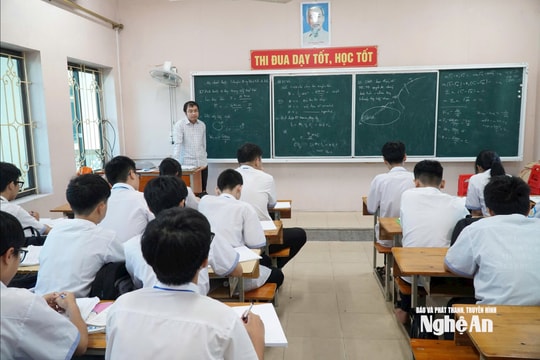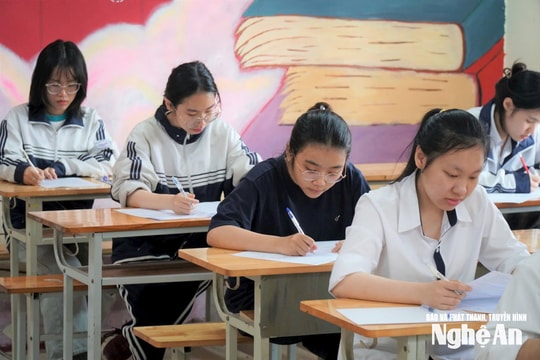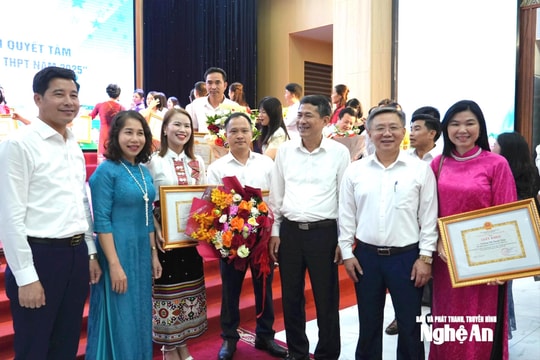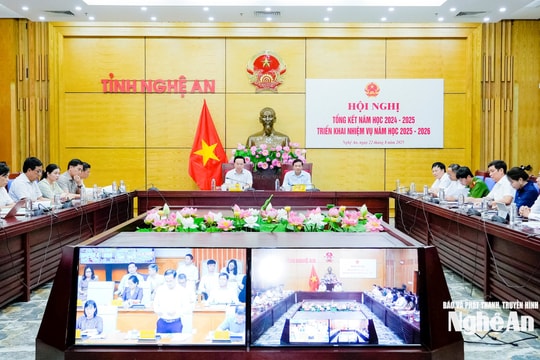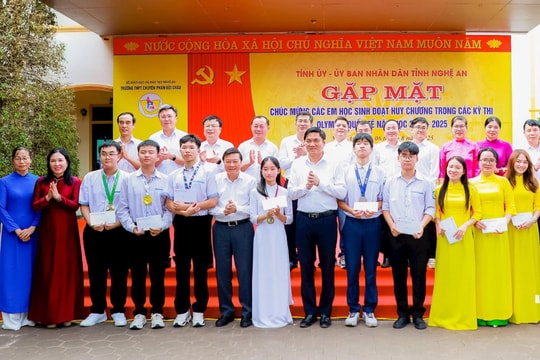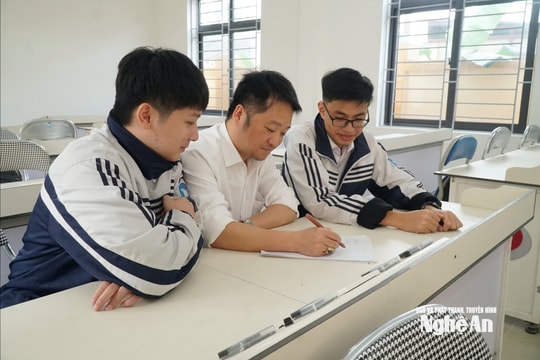Phan Boi Chau - great patriot of the early 20th century
Phan Boi Chau (old name is Phan Van San), pen name Hai Thu, later took the pen name Sao Nam (and many other pen names) was born on December 26, 1867, in Dan Nhiem village (now Xuan Hoa commune, Nam Dan district, Nghe Tinh).
As a child, he was famous for his intelligence. At the age of six, he knew everything.Three Character ClassicAt the age of seven, he already understood the classics, at the age of eight, he was already proficient in the literary works of the imperial examination. At the age of thirteen, he took the district exam and became the top candidate. At the age of sixteen, he became the top candidate in the region, so he was also called the top candidate in the region of San.
At the age of nine, he consciously responded to the movement of Tran Tan and Dang Nhu Mai against the colonialists. At the age of seventeen, upon hearing of the uprising movement in the North, he drafted a proclamation.Binh Tay Thu BacAt the age of 19, responding to Ham Nghi's Can Vuong edict, he organized a team of 60 military candidates to join the cause, but before he could act, the enemy had already come to sweep through the village. The mission was unsuccessful, but his will to save the country was clear.
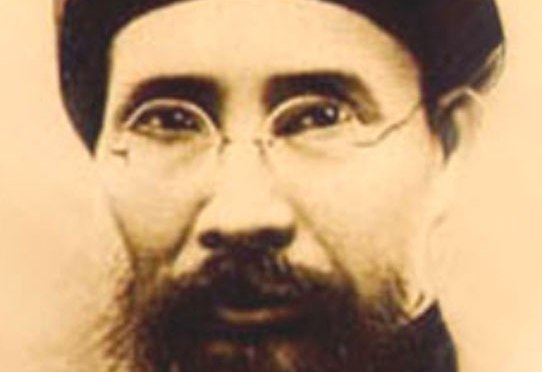 |
| Mr. Phan Boi Chau. |
After that, Phan Boi Chau worked as a teacher for ten years. In 1900, he became the valedictorian of the Nghe school and officially entered the revolutionary life. Phan foundedDuy Tan Association(1904), chose Marquis Cuong De as the leader, advocated violence and asked for foreign aid to restore independence. In early 1905, he went to Japan and then returned to start a movement called Dong Du in 1905-1908. He wrote many revolutionary propaganda works such as Viet Nam vong quoc su, Hai ngoai huyet thu, etc.
The leader of the Dong Du movement, Phan Boi Chau organized the Cong Hieu Hoi, gathering 200 Vietnamese students to study politics, science, and military in Japan. In his last years in Japan, he established associations of "international solidarity", like the associationDien, Que, - Vietnamese alliance(alliance between Yunnan, Guangxi and Vietnam) and the associationEast Asian Allies(including some Japanese, Chinese, Koreans, Indians, etc.) to help each other fight against the imperialists.
Around March 1909, the Dong Du organization was dissolved and Phan was expelled by the Japanese government. After returning to China for a short time, Phan Boi Chau went to Siam to work. More than a year later, when the Xinhai Revolution (1911) succeeded, Phan returned to China and foundedVietnam Restoration Associationwhose sole purpose was to drive out the French, restore Vietnam, and establish a nation.Republic of Vietnam".
After his patriotic activities, Phan was arrested by the French colonialists with the help of Chinese militarists on December 24, 1913.
In 1917, when Phan Boi Chau was released from prison, World War I was about to end. The influence of the Russian October Revolution and the national liberation movement that was stirring all over the world had a great impact on Phan Boi Chau. He wrote articles praising the great leader Lenin, praising the Workers' and Peasants' State of the Soviet Union, etc. During these years, although he had to make a living as a journalist in Hangzhou, working as an editor of the Binh Su Tap Chi, Phan still did not forget to take advantage of the press to propagate against the French and continue to find a way to save the country.
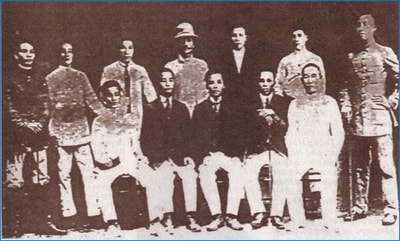 |
| Some students studying abroad in the Eastern Travel Movement (1905-1909). |
Mid-1924, adapted fromChinese People's PartySun Yat-sen and Phan Boi Chau reformed the Vietnam Restoration Association.Vietnam Nationalist PartyIn December 1924, after meeting with Nguyen Ai Quoc, Phan planned to reform the following year (1925).Vietnam Nationalist Partyin the most progressive direction.
But on June 30, 1925, on the way from Hangzhou to Guangzhou to meet his brothers, Phan Boi Chau had just arrived at the north station of Shanghai when he was kidnapped by the French colonialists and taken back to Vietnam. They plotted to secretly kill Phan Boi Chau, but the plot was exposed, so he had to be brought to trial at the Hanoi Criminal Court. His life "hero, angel, martyr for independence, worshipped by twenty million enslaved people"(1) was threatened, causing a massive movement of strikes and strikes throughout the country. Faced with that strong movement, the French colonialists were confused and had to announce his acquittal but forced Phan to return to live in Hue and not be allowed to go anywhere.
From 1926 onwards, Phan Boi Chau was a prisoner under house arrest in Ben Ngu. At this point, Phan Boi Chau's revolutionary life of dedicating everything to the Fatherland had to be abandoned. The Vietnamese revolutionary movement followed the new development of history and advanced like a storm. Although "Old Man Ben Ngu" had to live the life of "a fish in a bowl and a bird in a cage", he still wrote poems and prose to express the suffering of the people who lost their country, the responsibility of the people towards the country...
These are works: Nam Quoc Dan Tu Tri, Nu Quoc Dan Tu Tri, Prescription for curing the poor, Cao Dang Quoc Dan, Ethics Q&A, Words to ask the youth... Phan Boi Chau Chronology, Lich Su Su Viet Nam Dien Ca. These are also extremely massive research works such as Khong Hoc Dang, Phat Hoc Dang, Xa Hoi Chuc, Chu Dich, Nhan Sinh Philosoph, along with over 800 Nom poems of various types, dozens of fu poems, funeral orations, and other miscellaneous works.
------------
(1) Ho Chi Minh: Complete Works, volume 2, article The Farce or Varen and Phan Boi Chau, Truth Publishing House, Hanoi, 1981, p.18.
According to Nhan Dan Newspaper
| RELATED NEWS |
|---|

